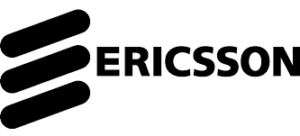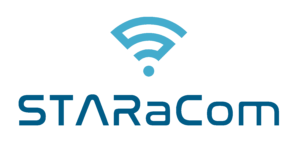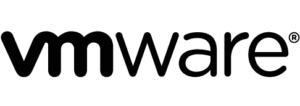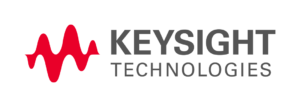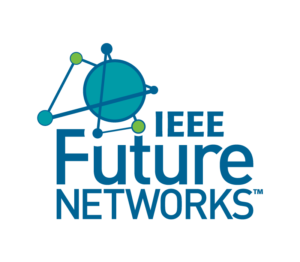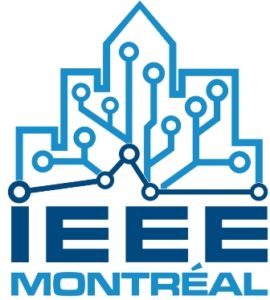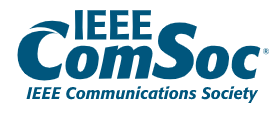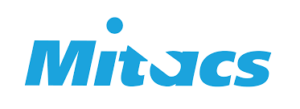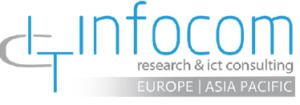2022 IEEE 5th Future Networks World Forum (FNWF’22)
Theme: A Comprehensive Look at 5G and Beyond
12-14 October 2022, Montreal, Canada, with virtual options
Organized by IEEE Future Networks, IEEE Computer Society, IEEE Communications Society, and IEEE Montreal Section
IMPORTANT DATES FOR PAPER SUBMISSIONS
Technical Paper Submission: 31 July 21 August 2022 (firm)
Symposium Paper Submission: 31 July 21 August 2022 (firm)
Workshop Paper Submission: 31 July 21 August 2022 (firm)
Acceptance Notification: 15 August Rolling basis until 31 August 2022
Camera-ready Submission: 31 August 12 September 2022
The 2022 IEEE 5th Future Networks World Forum (FNWF’22) seeks contributions on how to nurture and cultivate future network technologies and applications beyond 5G, and how they can benefit society. This will be a hybrid event based in Montreal, Canada.
This conference, called the 5G World Forum in its first four years, aims to bring experts from industry, academia and research to exchange their vision as well as their achieved advances in 5G and towards 6G, and encourage innovative cross-domain studies, research, early deployment and large-scale pilot showcases that address the challenges of 5G while identifying and investigating the possibilities of future networks.
QUICK LINKS
- Call for Technical Papers
- Call for Symposia Papers
- Call for Workshop Papers
- Call for Tutorial Proposals
- Call for Topical and Vertical Session Proposals
- Call for Industry Forum and Panel Proposals
- Call for Entrepreneurship and Innovations Forum Proposals
- Call for Demonstrations
- Requirements for paper submissions
CALL FOR TECHNICAL PAPERS
Original, innovative, and high-quality papers are solicited on the following technical topics of interest, but are not limited to:
TECHNICAL PAPER TRACKS
- Track 1: 5G and Future Networks Technologies [submit]
- Track 2: 5G and Future Networks Application and Services [submit]
- Track 3: 5G and Future Networks Trials, Experimental Results, Deployment Scenarios, Hardware and Test/Measurements [submit]
- Track 4: 5G and Future Networks Special Verticals [submit]
- Track 5: 5G and Future Networks Special Topicals [submit]
Track 1: 5G and Future Networks Technologies |
||
| o 5G and beyond New Radio (NR) specification
o Flexible and programmable RAN |
o Multicast / Broadcast in 5G and beyond
o Convergence of RAN and Core Network o Novel mobility management o Mobile Edge Computing (MEC) o Multi-Connectivity/RAT o Resource (network, relay, cloud-computing, etc.) management techniques in 5G and beyond Wireless o Device-to-Device Communications and networking o Cognitive spectrum access o X-haul transport network o Self-backhaul / integrated access networks o Energy efficient network design and protocols for 5G and beyond
|
o QoE/QoS management over 5G and beyond
o Dynamic QoS framework as an enabler for disruptive use cases and services o Network and protocol interoperability in 5G and beyond Wireless Networks o Heterogeneous cells and communications o Millimeter wave communications o Coordinated and small-scale cell communications o Machine learning and adaptive techniques for 5G and beyond o Ultra-reliability and low-latency in 5G and beyond o 5G and beyond and AI o 6G technologies o LEO and Satellite Technologies |
Track 2: 5G and Future Networks Applications and Services |
||
| o Smart Cities, Smart Public Places
o Smart Home, and 5G and beyond -based Building Automation o Smart Agriculture and Water Management o Cyber-physical systems, Context Awareness, Situation Awareness, Ambient Intelligence o Collaborative Applications and Systems o Service Experiences and Analysis o Cloud services with 5G & Future Networks o Next Generation Consumer Electronics with 5G & Future Networks
|
o Consumer Electronics, Assisted Living, Rural Services and Production
o 5G and beyond Wireless Networks for body sensors o Crowd-sensing, human centric sensing o Big data and 5G and beyond Data Analytics o Internet Applications Naming and Identifiers o Social-aware 5G and beyond networks o Industry of the future, e.g., Industry 4.0 |
o Semantic Technologies, Collective Intelligence
o Cognitive and Reasoning about Things and Smart Objects o Mobile Cloud Computing (MCC) and 5G and beyond o Horizontal application development for 5G and beyond o Design principles and best practices for 5G and beyond application development o Open Communities, Open API, Open Source o Testbeds/ Federated Testbed o Test-bed as a Service for Future Networks |
| Vertical Oriented Applications
o Healthcare, e-Health, Assisted Living o Building Management and Operation Automation o Environmental Monitoring o Connected Car, Automotive Intelligent Transport o Aerospace and Defense o Smart Grid, Energy Management |
o Utilities Management and Operation
o Consumer Electronics, Assisted Living, Rural Services o Mining, Oil & Gas, Digital Oilfield, Electronic Oilfield o Agriculture, Industrial IoT, Manufacturing, Hospitality, Retailing o Additive Manufacturing o Logistics, Entertainment o Large Event Management |
o Industrial Service Creation and Management
o Financial Services o Health of Machinery o Highway, Rail Systems o Industry of the Future, e.g., Industry 4.0 o Media & Entertainment o Digital Twins of Complex systems with 5G & Future networks
|
|
||
| 5G Experimental Scenarios
o Closing the Gap between Research and Implementation o Experimental prototypes, Test-Bed and Field Trial Experiences o Multi-Objective 5G System Modelling and Analysis—Performance, Energy, Reliability, Robustness o 5G Interconnections Analysis—QoS, Scalability, Performance, Interference o Real case deployment scenarios and results |
o 5G deployment at Government and ISPs
o 5G deployment on agriculture, retails, smart cities, etc o 5G Interconnections among ISPs Analysis—QoS, Scalability, Performance, Interference management o Gap Analysis for real deployments o 5G and Future Internet architectures o Standardization and Regulation . |
Future Networks Experimental Scenarios
o Infrastrructureless communication o AI driven encoding & decoding o Future network simulators |
| 5G and Future Network Hardware and Test/Measurements
o Massive MIMO, MU-MIMO, Multi-RAT system architectures o Reconfigurable and switching wireless network topologies o RF beamforming, digital beamforming and hybrid beamforming architectures o Beam steering and phased arrays o Antenna system architectures o 5G and beyond Radio designs o RFIC and CMOS technologies and architectures for 5G and beyond |
o RF, PA, PLL, Source, phase shifting, ADC/DAC/Modem blocks Full-Duplex and STAR architectures and evaluation methods
o RF blockers and interference cancelers o Test and measurement over entire 5G and beyond ecosystem. o Multi-standard coverage and measurement approaches o Antennas and Massive MIMO OTA tests o Array timing and synchronization |
o Channel measurements and modeling
o Radio measurements at microwave and mm-waves o Signal characterization o 5G and beyond device/component level testing; o mmWave Material, transistor and nonlinear device measurements o Terahertz for Future Networks (6G) |
|
||
| o Tactile Internet
o Smart factories and Industry 4.0 o Automotive, Intelligent Transport o 5G and beyond & Autonomous Driving |
o Industrial 5G and beyond Service Creation and Management Aspects
o Smart Grid, Energy Management o 5G-based Supply Chains & Logistics |
o 5G and beyond Wireless Networks for the Industrial Internet of Things
o E-Health and mobile health over 5G and beyond networks |
|
||
| Policy & Regulation
o Policy and Regulations o 5G and beyond Spectrum o Best Practices, Standards, and Open Source |
o Technical enforcement of legal 5G regulations, service level agreements, mutual legal assistance requests, etc.
o Privacy and security in 5G and beyond Internet of Things: data sharing, threats, liability, audit and compliance concerns for cloud-supported 5G and beyond, fog and edge computing |
5G Standardization
o ITU-T IMT2020 Spectrum standardization o IEEE 5G and future networks standardization o 3GPP 5G and future networks standardization o ITU-T 5G and future networks standardization o ETSI 5G and future networks standardization |
Important dates for Technical papers submissions
Technical Paper Submission: 31 July 21 August 2022 (firm)
Acceptance Notification: 15 August Rolling basis until 31 August 2022
Camera-ready Submission: 31 August 12 September 2022
Contacts for Technical Papers
TPC-Chair, Essaid Sabir, essaid.sabir@ieee.org
TPC Co-Chair, Halima Elbiaze, elbiaze.halima@uqam.ca
TPC Co-Chair, Gunes Kurt, gunes.kurt@polymtl.ca
TPC Co-Chair, Walid Saad, walids@vt.edu
TPC Co-Chair, Francisco Falcone, francisco.falcone@unavarra.es
CALL FOR SYMPOSIA PAPER SUBMISSIONS
Papers submitted to workshops will be evaluated and peer-reviewed along with the same criteria as the regular sessions. Accepted and presented papers will be added to IEEE Xplore and the conference proceedings. Original, innovative, and high-quality papers are solicited on the following technical topics of interest:
S1. Symposium on 6G Mobile Networks [CFP | submit]
S2. Symposium on Blockchain Future Networks [CFP | submit]
S3. Symposium on Connecting the Un/Under-Connected in 5G and Beyond [CFP | submit]
S4. Symposium on IoT & Sensor Networks [CFP | submit]
S5. Symposium on Satellite & Space Communications [CFP | submit]
S6. Symposium on Security for 5G and Future Networks [CFP | submit]
S7. Symposium on Next Generation Networks and Internet [CFP | submit]
S8. Symposium on Future Optical Networks and Communications [CFP | submit]
S9. Symposium on AI/ML-driven Communications [CFP | submit]
S10. Symposium on 5G for Connected and Automated Mobility [CFP | submit]
Important dates for Symposium papers submissions
Symposium Paper Submission: 31 July 21 August 2022 (firm)
Acceptance Notification: 15 August Rolling basis until 31 August 2022
Camera-ready Submission: 31 August 12 September 2022
Contact for Symposia Sessions
Symposium chair, Mithun Mukherjee, mithun.mukherjee@outlook.com
CALL FOR WORKSHOP PAPER SUBMISSIONS
Workshops typically include a mix of regular and invited presentations including regular papers, invited papers, as well as invited presentations, and panels to facilitate highly interactive sessions. Papers submitted to workshops will be evaluated and peer-reviewed along with the same criteria as the regular sessions. Accepted and presented papers will be added to IEEE Xplore and the conference proceedings.
IEEE FNWF’22 Workshops accepting paper submissions:
- WS1. 5G Trials Across Multiple Vertical Industries – From Experiments To Business Validation
- WS2. Workshop on Artificial Intelligence (AI)-Enabled Future Networks: A Cross-layer Perspective
- WS3. Incorporating Physical Layer Security in 6G Security Protocols
- WS4. Autonomic/Autonomous Networking and Autonomy in Future Networks, Interoperability & APIs, Progress & Open Challenges in Standards
- WS5. Federated Testbed as a Service for Future Networks: Challenges & the State of the Art
- WS6. International Workshop on AI and Pervasive IoT for sustainable Smart Farming
- WS7. Next Generation Routing and Management Infrastructures in 6G – NET-GENES22 Workshop
Important dates for Workshop papers submissions
Workshop Paper Submission: 31 July 21 August 2022 (firm)
Acceptance Notification: 15 August Rolling basis until 31 August 2022
Camera-ready Submission: 31 August 12 September 2022
Contact for Workshop Sessions
Workshop co-chair, Eman Hammad, eman.hammad@gmail.com
Workshop co-chair, Mohammad Patwary, patwary@wlv.ac.uk
Workshop co-chair, Mithun Mukherjee, mithun.mukherjee@outlook.com
CALL FOR TUTORIAL PROPOSALS
Submit a tutorial proposal via EDAS
Download the Tutorials Call for Proposals PDF
IEEE FNWF’22 solicits proposals for Tutorials of up to 90 minutes that complement the regular program with clear and focused coverage in new and emerging topics within the scope of the conference. Tutorials are an opportunity for researchers, developers, and practitioners from academia and industry to learn about state-of-the-art research. Proposals should concisely describe the motivation, the content, and the structure of the tutorial.
Tutorial Proposal Format
Tutorial proposals (4 pages maximum) in PDF format (Column: Single, Font: Times Roman, Size: 11 pt) should be submitted by the prospective Tutorial Speaker(s). Tutorial proposal submission must include the following:
- Title of Tutorial
- Name, Affiliation, and E-mail of Tutorial Speaker
- Abstract (200 words)
- Description of the Tutorial Proposal
- Objectives and motivation
- Novelty, highlighting the technical innovations presented in this tutorial
- Tutorial content, indicating the topics that the tutorial will cover in detail
- Tentative timeline schedule
- Tutorial Length: Maximum length of 90 minutes
- Intended audience
- Prior history of the tutorial presentations and number of past attendees, if applicable
- Short biography (half page) of Tutorial Speaker
Important dates for Tutorial proposal submissions
Proposal submissions: 21 August 2022 (firm)
Acceptance Notification: Rolling basis
Contacts for Tutorials
Tutorial Chair, Amruthur Narasimhan, narasimhan83@gmail.com
Tutorial Vice-chair, Christopher Udeagha, c.udeagha@ieee.org
Tutorial Vice-chair, Alireza Ghasempour, alireza_ghasempour@yahoo.com
Tutorial Committee Member, Ashok Rudrapatna, ashok.rudrapatna@gmail.com
CALL FOR TOPICAL AND VERTICAL SESSION PROPOSALS
Submit a topical/vertical proposal via EDAS
Proposals in the Vertical and Topical Areas should complement the conference program and not conflict with topics already covered by our Symposia. Proposals should address: suggestions for speakers (all speakers will be invited – no papers), panel discussions, roundtables, presentation sessions on focus topics, demonstrations of novel or important technologies, and events with other formats that may be effective for furthering the involvement and participation of the attendees.
Vertical/Topical Areas Proposal Format
Each proposal (maximum 3 pages) must include:
- Title of the Vertical or Topical Area Proposal
- Names, Institutions, addresses, and a short biography (up to 200 words) of the organizers
- Motivation, background, objective, description of the challenges issues to be covered (1-page max), and timeliness
- Structure proposal, tentative invited speakers and panelist and links to their bio
- If appropriate, a description of past versions of the previous Vertical or Topical Area session, the number of attendees, etc.
- Public adequacy
Contact for Topical/Vertical Areas Proposal:
Topical/Vertical co-chair, Aloizio Pereira da Silva, aloiziops@vt.edu
Topical/Vertical co-chair, Ivan Seskar, seskar@winlab.rutgers.edu
Important dates for Vertical and Topical Area Proposal Submissions
Proposal submissions: 31 August 2022 (firm)
Acceptance Notification: Rolling basis
CALL FOR INDUSTRY FORUM AND PANEL PROPOSALS
Submit a forum/panel proposal via EDAS
IEEE FNWF’22 will host Industry Forum & Panel Sessions. Forum and Panel presentation materials will not be published in the conference proceedings but will be available on the conference web site. Industry-focused sessions are encouraged, but a forum or panel outside of industry (government or research) may be considered. Proposals should contain an abstract, scope, intended audience, objectives, prior history, an outline, the biographical sketch of presenters, and any other information that may assist in making decisions. Industry Forum & Panel Proposals must be in single PDF file not exceeding Four Pages and submitted electronically to IEEE FNWF’22 Industry Forum & Panel Track using the EDAS Link.
Important dates for Industry Forum and Panel Sessions proposal submissions
Proposal submissions: 21 August 2022 (firm)
Acceptance Notification: Rolling basis
Contacts for Industry Forum & Panel Sessions
Ajay Rajkumar – rajkumar.ajay@gmail.com
CALL FOR ENTREPRENEURSHIP AND INNOVATIONS FORUM (EIF) PROPOSALS
5G and its extensions (i.e., B5G) have unleashed significant entrepreneurial, innovation, and investment opportunities the world over. It is generally entrepreneurial pioneers and startups who take the risk with new and innovative technologies, products and services, and introduce them to the market. EIF is designed to actively promote the engagement of entrepreneurs and young businesses in pioneering innovations in 5G and B5G and to stimulate vibrant discussions on how these would improve and evolve with time as technologies mature to deliver their full potential. The EIF offers a platform for innovators from the entrepreneur community to present and showcase their evolutionary or revolutionary technological strategies, and potentially disruptive business models. It also provides a networking venue for startup executives, entrepreneurs, investors, academics, and participants.
In addition to the invited participants, we welcome proposals for individual talks or panels that can give the Future Networks community fresh insights into how entrepreneurs are playing an innovative role.
How to Submit
Please provide an abstract and suggested length for each proposed presentation or panel by sending e-mail to the contact persons.
Contact for Entrepreneurship and Innovation Forum Sessions
Start-Ups co-chair, Sudhir Dixit, sudhir.dixit@gmail.com
Start-Ups co-chair, Titus Lo, titus.lo@ieee.org
CALL FOR DEMONSTRATIONS
Submit a demonstration proposal
The demonstrations are aimed at the researchers, practicing engineers, and technical managers who need to understand both technical and practical aspects of new and emerging topics within the scope of communications, networking, industrial practices/standards, and so on. Demonstrations should also emphasize training for current topics and demonstrate some practical works of interest to the industry targeting near-term implementations and development in those areas.
For in-person demonstration, a 6-foot tabletop will be allotted to the demonstrator with the fee of $3500 for industry presenters and $2000 for academic presenters. Each tabletop is equipped with a power supply. Any furniture or additional equipment is subject to additional fees. The placement of the tabletop is determined by conference organizers.
For virtual demos, each accepted demonstration must have a lead presenter who registers at the regular virtual registration rate.
Demonstrations Proposal Format
Each proposal (maximum 3 pages) must include:
- Title of the demonstration
- 2. Format of the demonstration (virtual or in-person)
- Names, Institutions, addresses, and a short biography (up to 200 words) of the organizers
- Motivation, background, objective, description of the technical issues that the demonstration will address (1-page max), and timeliness
- If appropriate, a description of past versions of the demonstration including the number of demonstrations, the number of attendees, etc.
- Public adequacy
Contact for Demonstrations
Furkan Ercan – furkanercan88@gmail.com
REQUIREMENTS FOR PAPER SUBMISSIONS
Papers must be submitted electronically – see above for EDAS links for each track
Full papers describing original research, written in English. The suggested size is four to six (4-6) pages. Papers up to eight (8) printed pages (10 point font) including figures, tables, will be accepted while incurring additional page charges. Extended versions of selected papers may be considered for publication in alternative IEEE publications.
When preparing your manuscript, please also pay attention to the following:
- If your paper has been prepared using Microsoft Word or LaTeX, please ensure that you have used the most current version which will help reduce pdf conversion issues such as embedded fonts, bookmarks, etc.
- No page numbers and no headers/footers
- Use non-zero PDF top and bottom margins (typically at least 0.5 inches/12.7 mm) to help indicate if there are any page numbers
Papers Format
Standard IEEE conference templates for Microsoft Word and LaTeX formats can be found here:
http://www.ieee.org/conferences_events/conferences/publishing/templates.html
Papers will be fully peer-reviewed. If the paper is accepted and presented, it will be included in the conference proceedings and be submitted to the Xplore Digital Library. IEEE takes the protection of intellectual property very seriously. All submissions will be screened for plagiarism using Cross Check. By submitting your work you agree to allow IEEE to screen your work for plagiarism.
IEEE Web Page on Plagiarism:
http://www.ieee.org/web/publications/rights/Plagiarism_Guidelines_Intro.html
IEEE Web Page on Double Submission:
http://www.ieee.org/web/publications/rights/Multi_Sub_Guidelines_Intro.html
[Please note: To be published in the IEEE Future Networks World Forum 2022 Conference Proceedings and to be eligible for publication in IEEE Xplore®, an author of an accepted paper is required to register for the conference and the paper must be presented by an author of that paper at the conference unless the TPC Chair grants permission for a substitute presenter arranged in advance and who is qualified both to present and answer questions. Non-refundable registration fees must be paid prior to uploading the final IEEE formatted, publication-ready version of the paper. Accepted and presented papers will be published in the IEEE Future Networks World Forum 2022 Conference Proceedings and submitted to IEEE Xplore.]
Sign up for email alerts to get the latest news and announcements for the 2022 IEEE Future Networks World Forum. If you have specific questions, contact us at FNWF@ieee.org.







